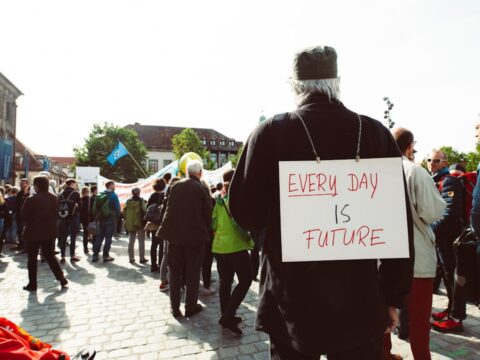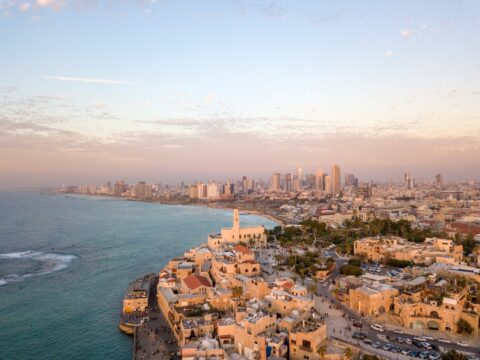
Israel is renowned for having a vibrant and varied culture. Situated in the Middle East, it is a culturally and religiously diverse melting pot. Exploring and appreciating Israel’s distinct cultural experience is worthwhile, as it encompasses both its ancient Jewish heritage and its vibrant modern art scene. Tolerance, respect, & unity among people from all walks of life are the results of mutual understanding and appreciation of diverse cultures. There are thousands of years of history associated with the Jewish people in Israel. Israel, which is regarded as the ancestral homeland of the Jewish people, holds special meaning for them.
Jews have endured persecution and banishment throughout history, yet their customs and principles have not wavered. Israeli culture has been greatly influenced by Jewish customs & principles. Deeply embedded in Israeli society are Jewish customs and holidays, including the observance of Shabbat, the Jewish day of rest, and the celebration of Passover & Hanukkah.
Israeli culture is also heavily influenced by Jewish ideals that emphasize the value of social justice and community, such as tikkun olam (repairing the world) and tzedakah (charitable giving). There are many different religions practiced in Israel, such as Christianity, Islam, Judaism, & numerous sects of these religions. In Israeli society, religion has a big impact on a lot of things, like politics, education, and interpersonal relationships. In Israel, the majority of people identify as Jewish, making Judaism the most popular religion. One of the most sacred places in Judaism, the Western Wall in Jerusalem, welcomes millions of tourists every year. Islam is the second most popular religion in Israel, and many Muslims live in major Muslim cities like Jerusalem, Nazareth, and Haifa.
Also, there is a significant Christian population in Israel, especially in Bethlehem and other locations connected to Jesus’ life. Israeli culture is strongly influenced by religious customs and practices, which are ingrained in the nation’s cultural heritage. The fervor with which religious holidays and rituals are observed unites people of all backgrounds. Israeli food is a synthesis of many international culinary traditions. It displays the population diversity of the nation as well as the culinary influences of Eastern European, Mediterranean, Arab, and Jewish cultures.
Israeli cooking is renowned for using flavorful, fresh ingredients like tahini, olive oil, and spices like sumac and za’atar. Shakshuka, hummus, shawarma, and falafel are some of the staple foods. These delectable dishes showcase Israel’s cultural diversity in addition to being delicious. Israeli culture revolves around food, which unites people and fosters a sense of community.
Getting together over food is a popular way to celebrate, bond, and form relationships. Israeli restaurants and chefs have won praise for their inventive & creative cooking methods, which has led to an increase in the popularity of Israeli food around the world in recent years. Israeli art reflects the nation’s modern society and rich cultural legacy in a dynamic & varied way. Israel has a vast array of artistic expressions, ranging from contemporary art installations to antiquated archeological artifacts. Israeli art comes in many different forms, such as mixed-media, painting, sculpture, and photography.
Artists are inspired to create original and thought-provoking works by their surroundings, history, & personal experiences. Themes of spirituality, identity, and conflict are frequently explored in Israeli art. Israeli musicians are well-known throughout the world for their skill & originality. Two well-known organizations that display Israeli art and give artists a place to display their work are the Israel Museum in Jerusalem and the Tel Aviv Museum of Art.
Israeli dance and music are essential components of the national identity. They are a reflection of the many customs and influences that have molded Israeli society. Modern pop and rock, Middle Eastern music, Western classical music, and traditional Jewish music are just a few of the many styles & genres that make up Israeli music.
Israeli musicians have demonstrated their diversity & skill through international success with artists like Ofra Haza, Idan Raichel, & Arik Einstein. Israeli dance is similarly varied, with influences from many different cultural traditions. Weddings & other festivities frequently feature traditional Jewish dances like the hora and Yemenite step. Modern dance groups, like the Batsheva Dance Company, are well-known throughout the world for their creative and emotive performances. Israeli culture is greatly influenced by music & dance, which unite people & foster joy and celebration.
Israel places a great importance on community and family. “Family” refers to more than just blood relatives; it also includes close friends and neighbors. In order to foster a sense of community and to strengthen their relationships, Israelis get together frequently for social gatherings, holidays, and meals. In Israeli society, community is extremely important, with people banding together to help one another out when things get tough.
The kibbutz movement exemplifies this sense of community; upon living and working together in a shared environment, people share responsibilities and resources. Israeli cultural customs, such as celebrating lifecycle events like weddings and bar/bat mitzvahs, highlight the value of family and community. These gatherings strengthen bonds between people and promote a sense of purpose and morality. Israel is a nation that observes many different festivals and holidays all year long. The historical, religious, and cultural significance of the nation are reflected in these festivities.
Israel observes many major Jewish holidays, including Yom Kippur, Rosh Hashanah, & Passover. Observances of these holidays include festive meals, prayers, and unique rituals. Joyful celebrations are held in honor of other holidays, like Hanukkah & Purim, which involve donning costumes and lighting menorahs. In Israel, national holidays like Independence Day and Jerusalem Day are observed in addition to Jewish holidays. These holidays are observed with parades, fireworks, and cultural events honoring important moments in the nation’s history.
Israeli culture has changed over time to reflect shifting social, political, and technological realities. New concepts and influences brought about by modernization have shaped the nation’s cultural identity. An important turning point in Israeli culture occurred with the creation of the State of Israel in 1948. Jews from all around the world were united by it, each bringing with them their own customs and traditions.
The depth and complexity of Israeli culture have been enhanced by this diversity. Israeli culture has been influenced by technological developments as well. Israel’s booming high-tech industry has earned it the nickname “Start-Up Nation.”. A tech-savvy, inventive culture that emphasizes creativity and entrepreneurship has resulted from this.
In order for future generations to comprehend and value Israel’s rich historical & cultural legacy, it is imperative that this heritage be preserved. Promoting and maintaining Israeli culture can be done in a number of ways. Culture heritage preservation is greatly aided by education. Incorporating Israeli history, customs, and artistic expression into the curriculum can help schools & educational establishments make sure that the next generation has a profound awareness and respect for their cultural legacy. Also essential to the preservation and advancement of Israeli culture are museums, galleries, and other cultural establishments.
They give musicians, artists, and entertainers a stage on which to display their creations and interact with viewers. Exhibitions, workshops, and other events honoring Israeli culture can also be planned by these establishments. Individuals can also aid in the preservation of Israeli culture by actively taking part in cultural events, patronizing regional musicians and artists, and conversing across cultural boundaries.
We can make sure that Israel’s cultural legacy survives & inspires next generations by valuing and appreciating diversity. Conclusion The wealth of customs, morals, and creative expressions can be found in Israel’s diverse culture. Fostering tolerance, respect, and unity among people from all walks of life requires an understanding and appreciation of this cultural diversity. Israel offers a distinctive cultural experience that is worth exploring and learning more about.
This includes the influence of Jewish heritage, the role of religion, culinary delights, artistic expressions, music and dance traditions, family and community values, festivals & holidays, modernization, and the significance of preserving cultural heritage. In addition to strengthening our sense of unity & appreciation for our common humanity, we can better understand Israel and its people by accepting and appreciating their diverse cultures.













